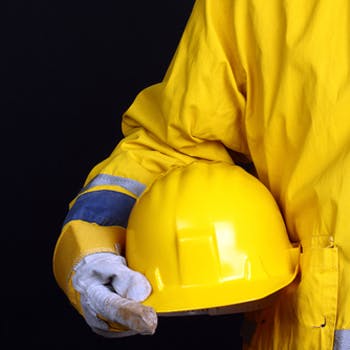It’s important to engage all of your employees in workplace safety so everyone knows what their responsibilities are and what to do in an emergency.
Workplace consultation involves developing and implementing effective consultation mechanisms, which encourage cooperation, engagement of workers and management across the workplace. Discussion between management and workers on workplace health and safety (WH&S) related issues are aimed at exchanging views and considering opinions. Reaching a consensus serves to foster collaboration, involvement and cooperation.
There are significant advantages for implementing a culture of consultation in the workplace. Businesses working to best practice recognise the benefits of regularly seeking opinions and views from workers, whether that be through consultation with individuals, groups, unions, or a mixture of all three.
The WorkSafe Victoria medium segment strategy encourages medium businesses to integrate safety into their business management systems, to ensure they practice prevention rather than reaction, and gain commitment from owners/directors to the process.
Often these owners and directors often are just simply unaware that systematic prevention based health and safety management and promotion leads to reduced WorkCover premiums and other cost reductions.
However, many people feel that current models of safety management systems are far too complex for the medium segment; they want the cost reductions, but not the complexity that comes with it. This is why the “Seven Pillars of Safety” has been developed.
The fifth pillar is “Consultation”. Regular inclusive discussion with relevant staff on workplace health and safety and return to work improvements results in a workplace safety system, which is owned and committed to by all employees.
So how does your workplace measure up?
Area: Health and Safety Representatives (HSR’s)
What to look for:
Expected practice:
- Designated Work Groups (DWG’s) are established through consultation
- HSR elections held every three years or as required
- HSR Training conducted
- List of HSR’s displayed
- Consultation minuted at health and safety committee (allowing for privacy considerations) and outcomes acted upon and recorded.
Unacceptable practice:
- Employees request HSR’s but none in place
- HSR’s appointed by management
Area: Supervisors / Managers
What to look for:
Expected practice:
- “No Blame” culture
- Managers and supervisors have consultation KPI’s
Unacceptable practice:
- No procedure in place
Area: Health and Safety Committee (HSC)
What to look for:
- Defined scope and frequency
Expected practice:
Health and safety committee:
- Meets regularly (at least quarterly)
- Is involved in relevant organisational activities
- Has documented objectives
- Have minutes displayed to all staff and reported to directors
- Are attended by senior manager (at least direct report to owner / director)
This simplified approach is designed to support personnel in medium businesses that have OHS and RTW responsibilities on top of their normal duties. It will establish and confirm their role as the ringmasters, not the experts and as facilitators, not doers of everything.
WorkSafe have found that these people lack confidence, skills and capability, but are expected to have all the answers and are often presented with an overwhelming amount of complex information. The aim is to provide them with support that is easy to access and tailored to their needs.
At Work Safety Hub we are using the seven pillars as a guideline. Businesses now have a much simpler view and understanding of their roles and responsibilities.

